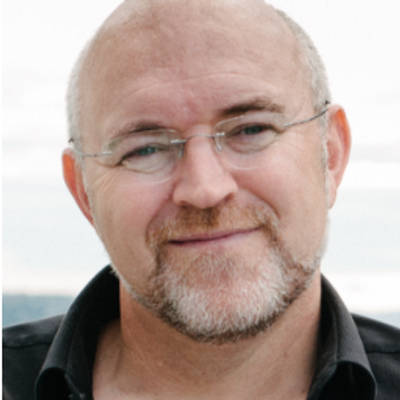A smart city is everyone's business
A smart city requires different actors working together, which means also creating an environment where new business models will have to be created and allowed for, says Gard Jenssen founder of Smart Cities Norway.

In our ongoing series of stakeholder interviews, Gard Jenssen from Smart Cities Norway shares perspectives on opportunities and considerations related to smart cities and use of ICT in urban planning and development.
He is an entrepreneur and co-founder of Smart Cities Norway and has long experience both from research and technology development from e.g. the EU commission, Yahoo! and Kelkoo.
1. In the last decades, new ways of research have been implemented, and they are referred to as crowdsourcing, citizen participation, citizen science, public participation or volunteered information. Where do you see the biggest advantage of such approaches?
There are several advantages:
Municipal authorities at the end of the day are service providers, and they have “customers”. Service providers need to know their customers. With municipal budgets under pressure, there is a good chance that some services in the future will have to be community driven – or co-driven.
Our political system is out of date as well – in order to influence the services you yourself enjoy, participatory action is an alternative to joining a political party in order to have your say.
2. Where do you see the biggest challenge of such approaches?
The main challenge I see is about methodology.
Municipalities need to empower and engage citizens. Merely meeting them and conducting dialogue is not the same as empowering or engaging.
Furthermore, there is a tremendous challenge in culture. Like all modern innovation, participatory processes demand experimentation. Public authorities are not known for their willingness to do methodical experimentation.
Municipalities need to empower and engage citizens. Merely meeting them and conducting dialogue is not the same as empowering or engaging.
3. The vision of smart cities is nowadays a well-established path based on integrating multiple ICTs. Where do you see the greatest potential (if any) for the use and integration of multiples ICTs for urban sustainability?
A smart city should therefore also be about creating time and space for contemplation and social life.The lowest-hanging fruit here is definitely in the area of mobility. The Ruter app alone has made a substantial impact.
There are promises of high sustainability gains for smart parking services and automatic routing as well. Such services will reduce cost, emissions and time. However, they may also contribute to speeding up already speed-up daily activities, thus making city life less attractive in itself.
A key point related to this; cities MUST start collaborating on the facilitation and standardization of open data, otherwise it will be either extremely expensive to become a smart city or possibly it will not happen at all.
If a city wants to be smart, it has to involve business, academia, NGOs and civic hackers.
4. Any other thoughts you would like to share?
If a city wants to be smart, it has to involve business, academia, NGOs and civic hackers. Municipalities do not have the understanding and competencies required. This means creating an environment where new business models will have to be created and allowed for.
There are plenty of services that municipalities do not have to be in charge of or operate themselves in order to ensure that they exist. Among these are libraries, parking control and waste management.
Cities MUST start collaborating on the facilitation and standardization of open data.
---------------------------------------------------------
Do you have a question or something to add? Leave a comment below.
This blog post is part of a series where we interview stakeholders about ICT, crowdsourcing, research and urban sustainability.
iResponse on twitter: @iresponse_rri #crowds4research